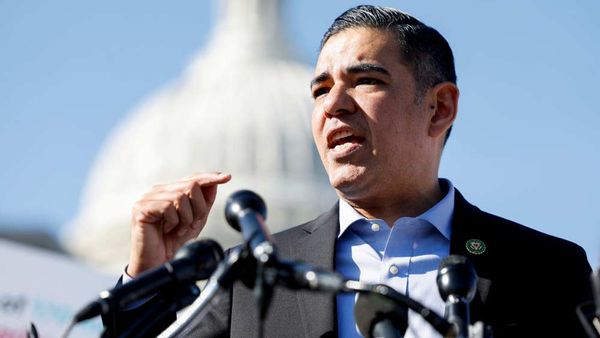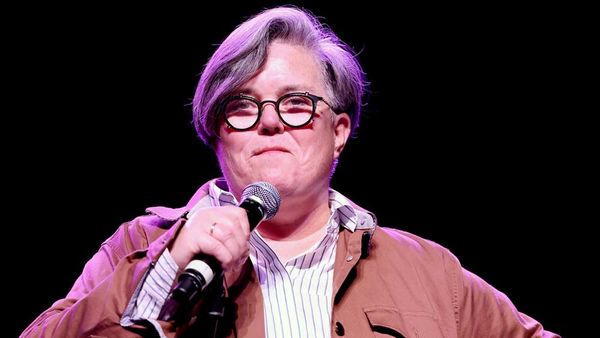Apr 19
EDGE Interview: Argentine Filmmaker Matías De Leis Correa Discusses his Streaming, Seductive Feature 'Since The Last Time We Met'
Frank J. Avella READ TIME: 11 MIN.
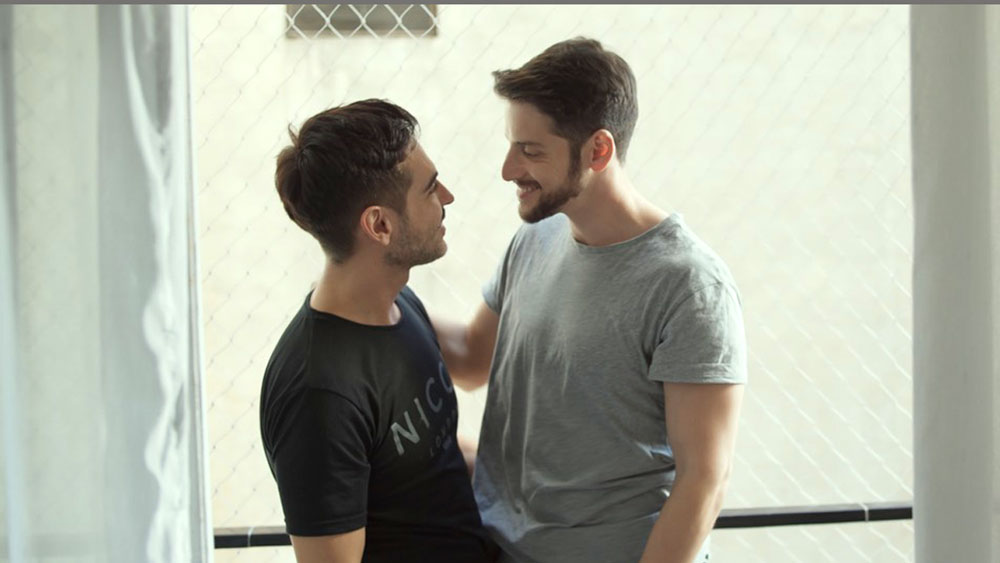
Argentinian filmmaker Matías De Leis Correa's stunning sophomore feature, "Since The Last Time We Met" ("Desde La Ultima Vez Que Nos Vimos") had its world premiere at last year's OutShine Miami Film Festival and has now been released theatrically here in the U.S.
Reminiscent of the '70s play and film "Same Time Next Year," (but decidedly more serious) this two-hander is an absorbing meditation on love, longing, desire, repression and heartache. The film centers on workaholic 30-something Victor (Patricio Arellano) who runs into his old flame David (Esteban Recagno) on the streets near his home in Buenos Aires. 15 years ago, when they were teens, the two were in a secret sexual relationship and now they find themselves revisiting and rekindling even though David is married to a woman – and still deeply closeted. Victor has carried a torch for David, despite the fact that David ghosted him all those moons ago.
Watch the trailer to "Since The Last Time We Met"
The deft script, by De Leis Correa, often feels like a stage play, but leans cinematic thanks to cinematographer Evelyn Flores. The music, by Fernando Nazar, helps create a star-crossed lovers feel throughout the 81-minute running time. Arellano and Recagno have incredible chemistry which adds to the sexy and seductive atmosphere.
De Leis Correa has one previous feature credit, the poignant "Convalescent," about a family coming to terms with an older relative's memory illness. He has directed a number of short films and music videos.
"Since The Last Time We Met" has played many Festivals throughout the world, including BFI Flare and Reeling Chicago, and is now playing in theaters courtesy of Dark Star Pictures. The film has also been released on digital and demand.
EDGE had the pleasure of chatting with the writer-director about his film.
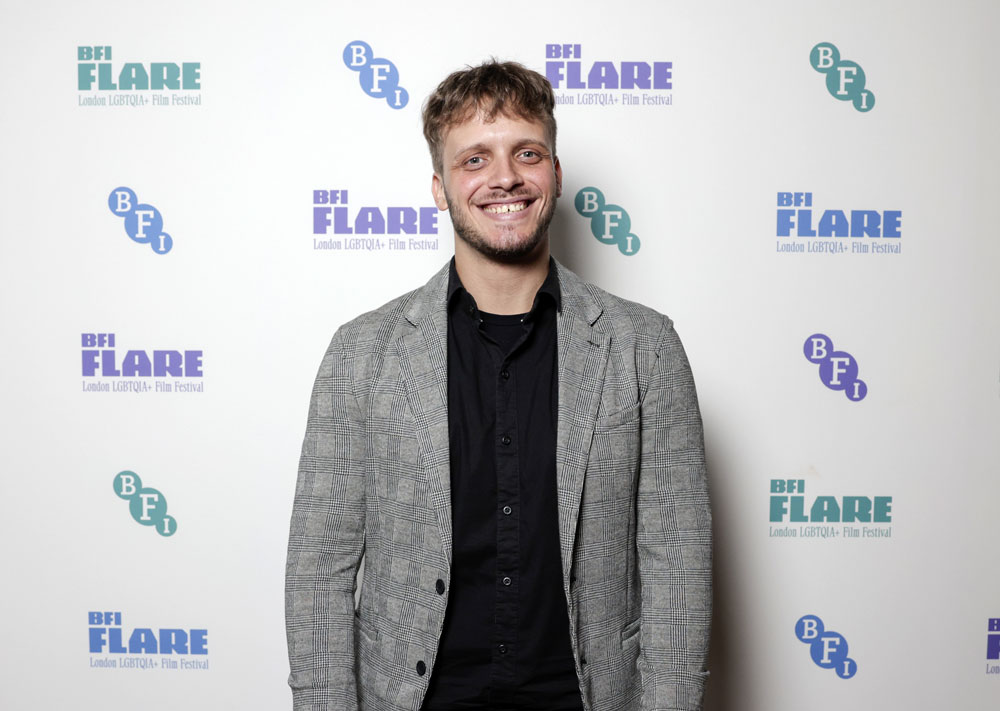
Source: IMDbPro/© Millie Turner
EDGE: Matías, why did you want to tell this particular story and was it at all autobiographical?
Matías De Leis Correa: Well, I made my first movie, "Convalciente" ("Convalescent)" in 2020 and it was about a family. I wanted to make my second motion picture a romance story. Romance, as I understand romance, that you can feel something for a person that doesn't have to last forever. You may love a person for a week, for a minute or maybe for a whole life... I love all that kind of movies, like (Ingmar) Bergman and those talky movies. Almodóvar, is another... I really want to (say) that beyond this love story between Victor and David, the main thing was how time goes by. You never know when it's going to be the last time you're going to see a person you love, a person you really care for. I think that the main thing in the movie is Victor never knowing if the next encounter he has with David is going to be the last one... It's not (auto)biographical. But I've been Victor. I've been David...
EDGE: The gift the movie gives the viewer, whether he's gay, straight, bi, is a moment of "what if?" We all have that one person we miss, the one that got away, or the one that we never even hooked up with. And the film asks, what would happen if I met this person again?
Matías De Leis Correa: Absolutely. As you just mentioned, let's say you dated someone when you were 20, it (won't be) the same to reunite with that person, 15 years later 3– in bed, having a coffee, It's going to be absolutely different. Because our body changes, how we feel, how we connect...
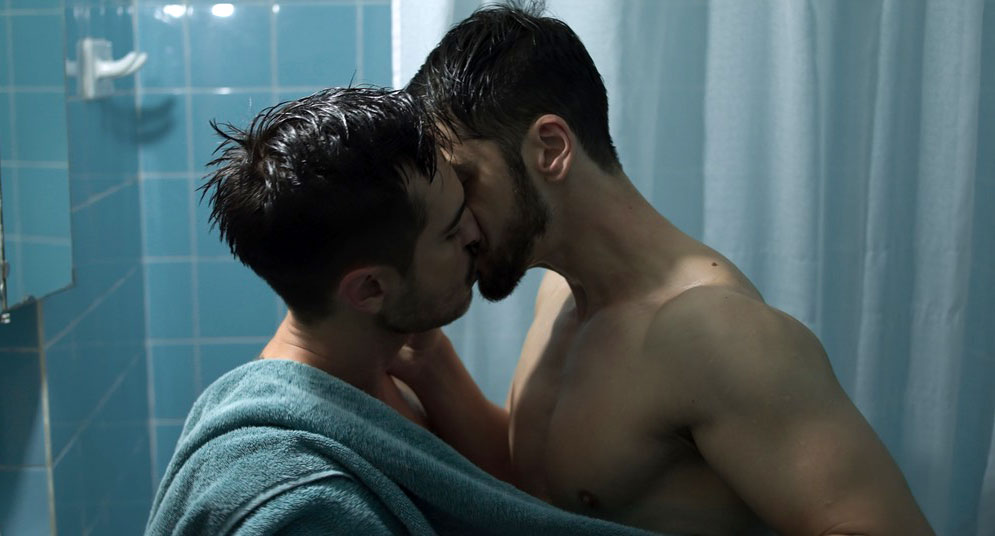
EDGE: This film is almost like a stage play. Can you speak a little bit about finding the structure of the film?
Matías De Leis Correa: ...My three movies (including the most recent) are all this way. I love intimacy. I don't need to go to lots of locations and places when the important thing happens in a certain place, particularly since (the characters) have to be hidden all the time... these clandestine encounters... I love working with realism in movies, and what's more real than being in your 30s in your apartment and drinking beer and having a date? I really want it to feel like home... a world where you relate to that simplicity of loving a person. We are here on our couch, having this beer and telling you how much I hate you or how much I love you. Sharing this moment. That's what I intended to do with my three movies. So that's a direction decision.
EDGE: The film also deals with internalized homophobia, especially when it comes to David. He loves Victor, but he refuses to say it.
Matías De Leis Correa: David is so scared. I think that his life was paused the day he decided not to see Victor again. And when they meet, he is suddenly 18 years old again... He has to deal with all the phases of accepting yourself, accepting the fact that you may love a person of the same gender. Those things, Victor has already gone through...
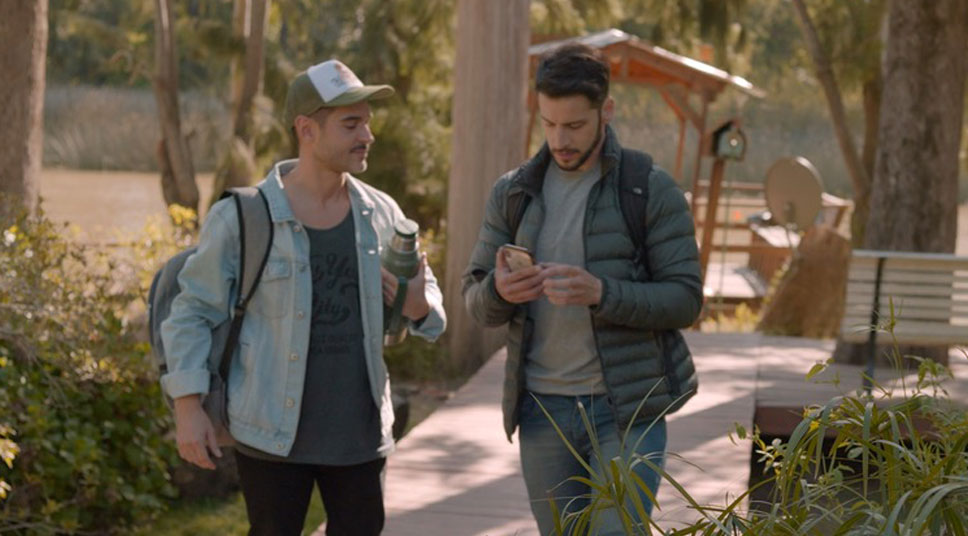
EDGE: Can you speak a bit about casting your two terrific actors?
Matías De Leis Correa: Yes. Patricio Arellano is a great singer and actor in Argentina. He had never done cinema before... The last song (over) the credits, Patricio sings it. He's really famous in Argentina in musical theater. And I always wanted to work with him... We had a friend in common and I told her I'd love to give him the script. Patricio lives in Spain but at that moment he was in Argentina for three months for work. She gave me his contract... He said, "Yes, please, I want to read it." He read it and sent me a voice (mail) at 2 a.m., saying, "Matias, I just read the script. I loved it. I would love to be Victor. And if you don't want me, I don't care. I want to watch this movie. Please invite me to the premiere." And I was like, "Oh my God, yes, of course, let's meet." We met and it was kind of a love at first sight thing, because we became friends the same moment.
I've known Esteban Recagno since I was 22. We shared some theatrical plays. I'm an actor, too. Then we worked on other movies, where I was assistant director or in production and he was an actor. We said we have to make our dream come true, working together. He's living in Peru right now. And he came to Argentina because he wanted to be David.
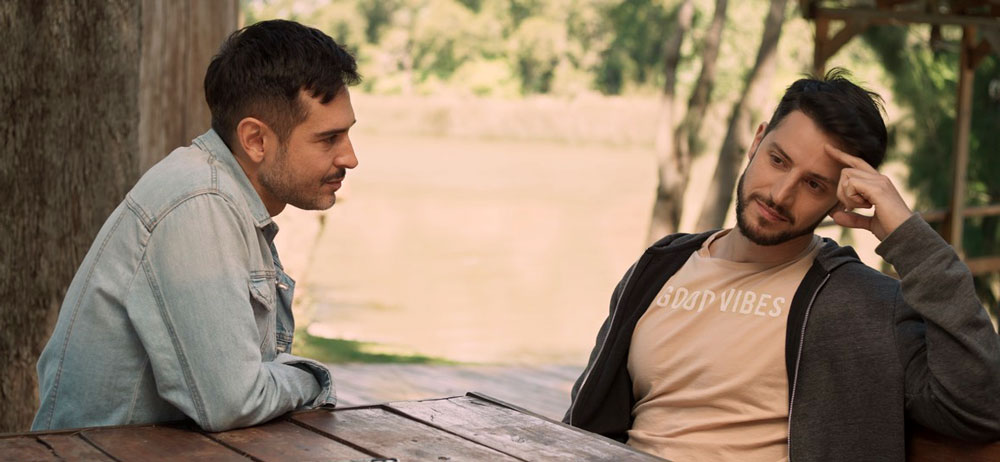
EDGE: Was there a rehearsal process?
Matías De Leis Correa: This movie was shot in seven days...We didn't have much time for rehearsals because they were really busy with other commitments. We had three or four rehearsals only. Everything was really focused on set. So, it was lovely. I'm really happy because the movie is traveling all around the world. We've been in 14 festivals. Now it's going to have its USA and Canada release, at the end of this month, I'm going to release it in Mexico, too. I'm really happy that lots of people are getting to know their work because they are awesome.
EDGE: The intimate scenes are beautifully filmed. The major sex scene is passionate, sexy, never gratuitous.
Matías De Leis Correa: I wasn't looking for an explicit sex scene. I didn't need that. I didn't want it. I love those scenes, don't get me wrong. (laughs) But I don't think that this movie needs that because they're two nice characters getting back (with) each other, so being too explicit wasn't really good for the movie. I asked the (two) actors what they wanted to do, choreograph it? And they decided they didn't want to rehearse anything. They wanted to have this kind of first encounter, first hook up, so we only did two takes of the sex scene... And it was natural. They wanted to feel it in that moment. And only two takes were enough to get me what I needed.
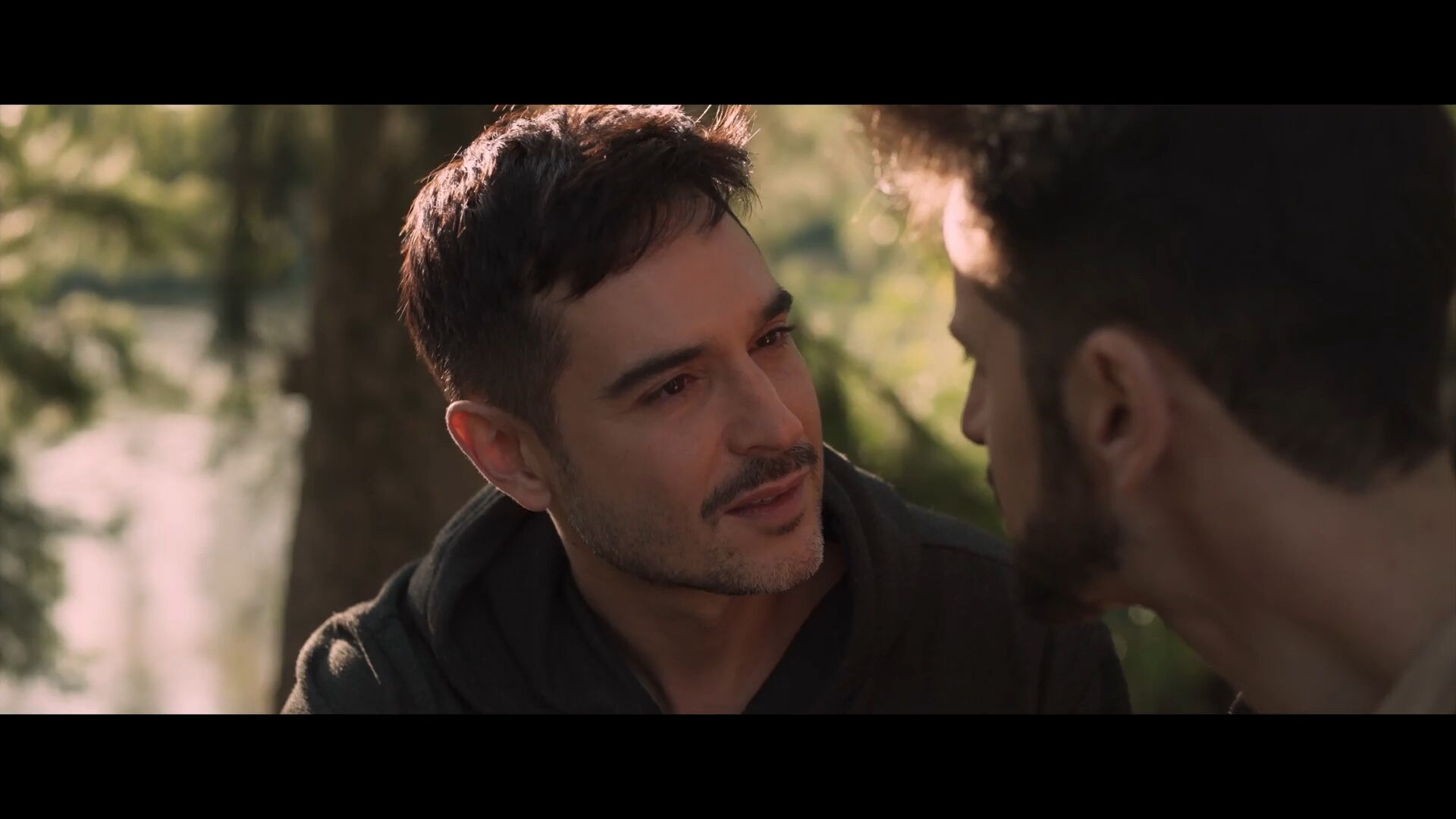
EDGE: The score, by Fernando Nazar, is like this throwback to the romance movies of yesteryear. It works so well.
Matías De Leis Correa: Fernando is the sound director and composer of my three movies. We are really good friends. He reads my script. We start talking and I may tell him I love this kind of music. That's all. And he's like, give me two days. And suddenly I have these drafts of the compositions... And I listen to the songs and they're beautiful... We (wrote) the final song. I wrote the lyrics. And Fernando wrote the music. We're so in love with it. There's an English version, too, on Spotify.
EDGE: You talked about the film's extensive festival journey. Can you share your thoughts on audience reactions and what the Fest experience has been like?
Matías De Leis Correa: I was invited to Miami Outshine, that was the world premiere. Two weeks ago, we were in BFI flare, They took me to London to present it. It was amazing. Those were my only two traveling abroad experiences. ... The greatest dream is to get messages on Instagram or email in languages I don't understand, like Estonian (that) they loved my movie... I think it's really beautiful to connect with people from so many countries... And every time I go to the theater and the movie finishes, people come up and hug me and thank me because of the movie and how they related (to it). They share stories. At Outshine, I cried a lot. I was so nervous being by myself in Miami. At that first premiere, no one had ever seen it. And this man who was like 85-years old comes up to me, looks me in the eyes, starts crying and says, "First I used to be David, and then was Victor. Thank you so much." And he hugs me and starts crying. And I start crying with him. I love making movies. And if I can (touch) people's hearts like this, it's amazing.
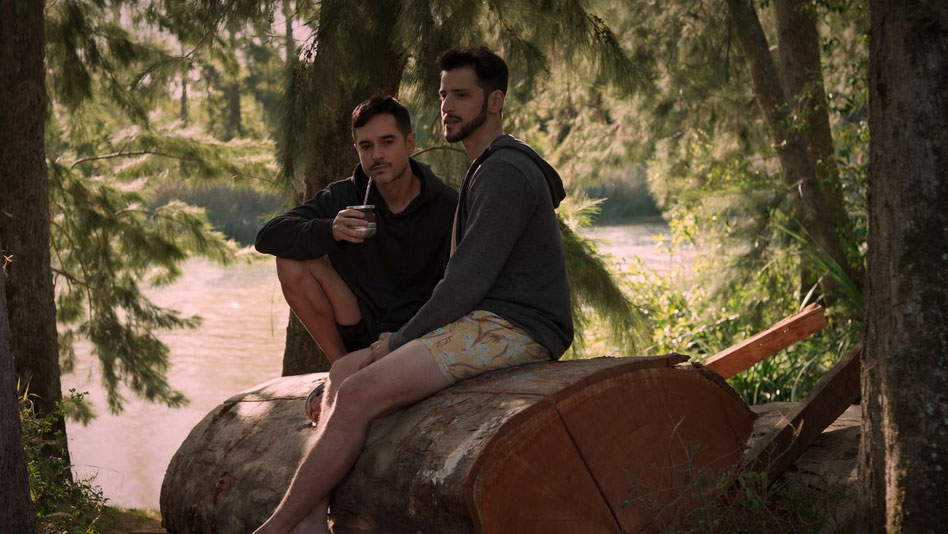
EDGE: I want to ask about the Argentinian film industry. Do you find it difficult to get projects made? And what about queer projects in Argentina?
Matías De Leis Correa: Well, as of yesterday, we have a new president. Argentina chose him. I did not choose him... Argentina is going through a really hard time. Yesterday, the Cinema Institute was closed because the President doesn't think that making movies is profitable – it's spending money with no purpose, so he closed the Institute... Of course, independent movies are still going to the shot. But artistically and culturally speaking it's really complicated... For LGBT projects, you (have to) find the right persons to work with... We have three or four LGBT Festivals in Argentina... they are not extremely visible, but no one is against them either...We really support each other in the LGBT community and the non-LGBT community, too.
EDGE: What can you share about this third film? Is it ready to be screened?
Matías De Leis Correa: Yeah, it's waiting for its world premiere. We are waiting for festivals, so fingers crossed. We don't know when it's going to happen... And the name of the movie is "Lucia's New Boyfriend." It's about bullying. It's the most personal, intimate movie of the three I wrote and directed... It's a drama-suspense movie with lots of dialogue. It could be a theatrical play, too. And it's the end of this trilogy. As soon as it's ready, I hope you will see it in the big screen.
EDGE: Who are your filmmaker heroes?
Matías De Leis Correa: I have lots. I mentioned Bergman. Almodóvar. Yorgos Lanthimos. When I was 12 years old. I watched "The Hours," the Stephen Daldry film, and in that moment I said, I want to study filmmaking, And since then I never stopped watching movies and dreaming about movies.
"Since the Last Time We Met" is available for streaming. Follow this link for more information.
Frank J. Avella is a proud EDGE and Awards Daily contributor. He serves as the GALECA Industry Liaison and is a Member of the New York Film Critics Online. His award-winning short film, FIG JAM, has shown in Festivals worldwide (figjamfilm.com). Frank's screenplays have won numerous awards in 17 countries. Recently produced plays include LURED & VATICAL FALLS, both O'Neill semifinalists. He is currently working on a highly personal project, FROCI, about the queer Italian/Italian-American experience. He is a proud member of the Dramatists Guild. https://filmfreeway.com/FrankAvella https://muckrack.com/fjaklute



